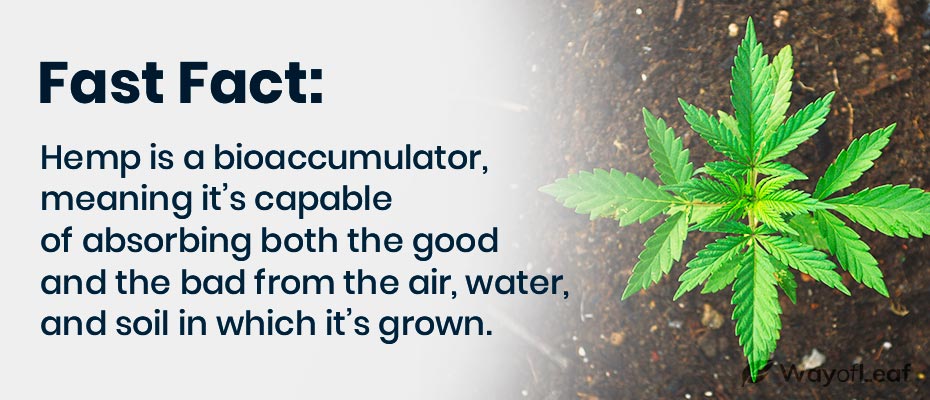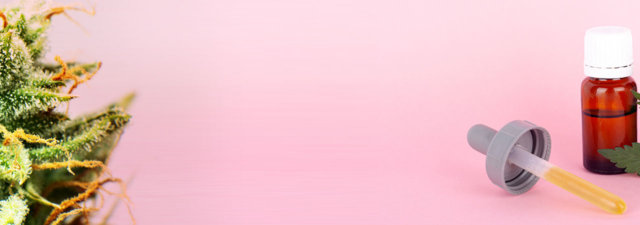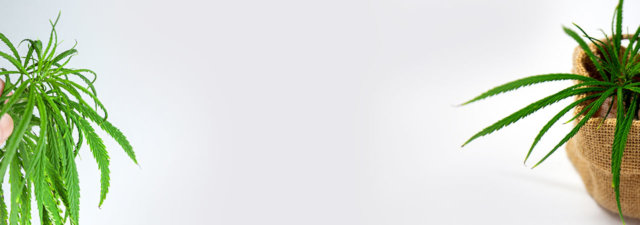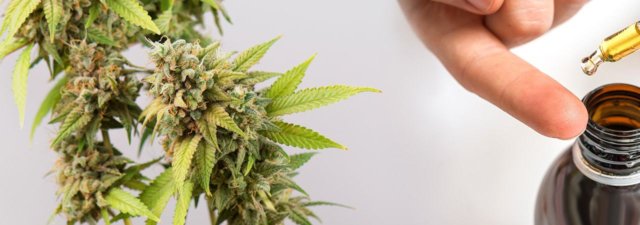In 2018, the Farm Bill legalized the cultivation of industrial hemp throughout the US. Because of this, the CBD market has exploded in the last few years and will likely continue to grow.
For reference, in 2015, the CBD market earned $202 million, and in 2016 it grew to $688 million. By 2025, some financial estimations surmise that the market could grow by another 20-23%.
While this is unquestionably exciting news, it is still worth recognizing that the cannabis industry is a relatively unregulated market. Some brands, trying to make a quick sale, may pass off low-quality and unsafe products to unsuspecting customers. Therefore, it’s wise to do thorough research to find the best products on the market because CBD oil isn’t cheap!
In this article, we provide you with seven excellent ways to spot high-grade CBD oil to ensure you have an impactful and positive CBD experience.
How to Identify High-Grade CBD Oil
With so many CBD oils on the market, it’s never been more important to scrutinize quality. Often this centers around the specific brand and how they implement quality control throughout the growing, extracting, and manufacturing process.
Fortunately, there are various ways to identify superior CBD oils. Most, importantly, you should check if the company:
- Sources organic and ethically-grown hemp
- Uses CO2 extraction
- Publishes 3rd party lab reports
Additionally, you can learn more about an oil by looking at its color and cannabinoid content (full-spectrum, broad-spectrum, isolate).
For new CBD users or those who want more information on products, we’ve listed 7 top ways to identify high-grade CBD oil.
1 – Check the Color of CBD Hemp Oil
A surprising number of people are blissfully unaware that CBD hemp oil comes in varying degrees of strength and quality. The oil must be extracted via the supercritical and/or subcritical CO2 extraction method, but that still doesn’t necessarily mean the oil will be pure.
Generally speaking, there are three types of CBD oil:
Raw: This type of oil is almost black in appearance (or dark green) because once it has been extracted from the raw hemp material, no further purification processes have been implemented. Therefore, your oil will contain terpenes and chlorophyll along with other parts of the plant.
Decarboxylated: Decarboxylated CBD oils are similar to raw CBD oils except the active compounds have undergone the ‘decarboxylation’ process. In the raw plant material, both THC and CBD exist as acidic molecules (THC-A and CBD-A, respectively). Still, the chemical process of decarboxylation “drops” the acid, which (some claim) improves bioavailability. Appearance-wise these are also unfiltered oils and have a dark green or black color similar to the raw tinctures.
Filtered: This is the CBD oil that most manufacturers make and that most people consume. It comes in a lovely light golden color and has undergone both decarboxylation and filtering processes. These processes remove the parts of the plant that were leftover from the initial extraction process. If you want to look at things in a more ‘translatable’ way, high-grade CBD hemp oil is like a fine brandy or vodka insofar as it has been triple distilled for purity!

2 – Where Is the Hemp Sourced?
You will notice that most high-grade CBD hemp oil comes from Colorado or Denmark. However, other locations grow extremely high-quality hemp (including Kentucky, Germany, the Netherlands, and other Scandinavian countries). The most important factors include where the plant was grown, how it was grown, and the species of cannabis (whether it’s a Cannabis indica, Cannabis sativa, or Cannabis ruderalis variety). The soil, climate, and even the plants growing in neighboring farms all affect the quality of the product.
If you choose CBD sourced from hemp grown under “non-food” conditions, you could be consuming toxic substances.
Also, it is crucial to remember that cannabis is a ‘hyperaccumulator.’ This means it absorbs contaminants from the soil (and the air) that it grows in with ease. If you choose CBD sourced from hemp grown under “non-food” conditions, you could be consuming toxic substances.
European hemp farms (particularly German-certified farms) are notorious for having some of the strictest agricultural regulations in the world. You might say that they represent the “gold standard” in terms of the purest, highest quality raw CBD material. Also, remember that all organic hemp grown in Europe adheres to European Union standards, which are far stricter than in the United States.
3 – How Is CBD Oil Manufactured?
There are many ways to extract CBD from hemp. However, the main purpose is always to isolate the desired phytocompounds (cannabinoids, terpenes, flavonoids) and filter out any unwanted plant material.
Extraction methods include:
- CO2 extraction (typically supercritical carbon dioxide)
- Alcohol extraction (ethanol, butane, etc.)
- Olive oil
Generally, CO2 supercritical extraction is considered the best method, despite its high cost. Not only does it gently extract hemp’s compounds, ensuring they aren’t damaged, but it is solventless, which means little risk of contamination.
On the other hand, alcohol extraction is inexpensive and often a more straightforward process. However, companies may run the risk of extracts containing residue, especially if little filtering has been conducted.
When it comes to extraction, safety is paramount, which is why CO2 extraction is often recommended.
4 – Is It Extracted Using Supercritical CO2?
Supercritical CO2 extraction is expensive; despite this, most reputable brands choose this method because it produces high-quality extracts.
Companies either use supercritical, mid-critical, or subcritical. Generally, these methods are very similar and follow the below step-by-step process.
- The hemp material is placed inside an extraction chamber that is slowly filled with carbon dioxide.
- The pressure inside the chamber is slowly increased, turning the CO2 gas into a liquid. During this stage, the liquid becomes infused with hemp’s compounds, including CBD.
- The liquid is transferred to another chamber, where the CO2 is once again turned into a gas, isolating the CO2 from the hemp extract.
- Once the extract is infused, the manufacturers can then purify it until they are satisfied with its purity.
For a greater understanding of the different types of CO2 extraction, please take a look at our overview below.
5 – Is the CBD Hemp Oil Tested by an Independent Third Party?
Since cannabis is not an FDA-approved food or drug, independent third-party testing is NOT a mandatory requirement in the CBD oil industry. As such, some companies avoid it altogether to avoid paying more costs. On the other hand, reputable companies routinely pay thousands of dollars to use independent third-party labs. Lab testing verifies the contents of their products in terms of both purity and potency.
For some of the larger CBD companies out there, the overall cost of third-party testing easily runs into six figures. Only a company with high-grade CBD hemp oil will pay such a large sum to prove the validity of its marketing pitch. Most organizations that pay for the tests post their Certificate of Verification on their website. So be on the lookout for this when you’re shopping around (or if you don’t see one, feel free to call the company directly to ask them where you can view their lab reports).
Do your research and ensure that the third-party lab is genuine and not some fictitious operation made up to fool customers. A simple online search for the analytics lab should take you directly to their website.
Finally, it’s essential to understand that third-party labs test the cannabinoid profile of the oil, along with any potential contaminants. Quality certificates will tell you the percentage of CBD, terpenes, and other phytocannabinoids in the oil and any pesticides, heavy metals, or other microbiological contaminants. In simple terms, independent third-party lab testing means there is nowhere to hide for low-quality CBD oil producers
6 – Beware of the THC Content
CBD hemp oil must contain less than 0.3% THC to be legal to sell and ship across the United States as a food supplement. THC is the psychoactive component of marijuana, but industrial hemp naturally contains very low levels of it. On the other hand, CBD is non-intoxicating and helps relieve pain and deal with a host of other medical issues without being intoxicating.

The trouble is, some manufacturers are less than open about the full ingredients of their CBD hemp oil. As a rule of thumb, it is best not to risk purchasing any oil which doesn’t provide you with the complete list of ingredients, especially the THC and CBD content. It’s imperative if you are worried about drug testing.
Even at 0.3% THC, there is a possibility of failing a company drug test if you consume a large amount of CBD oil. As such, you should be looking for products with THC content as close to zero as possible. A handful of brands sell CBD oils with practically no THC.
7 – Is It Whole Plant Extract?
There are oils made from whole-plant hemp and oils made from isolated hemp. Whole plant hemp is extracted from the seeds, stems, and stalks. Not only does the oil contain CBD, but it also has a full range of other natural cannabis compounds such as terpenes, flavonoids, and “secondary” cannabinoids like CBG, CBC, and CBG-A.
In contrast, isolate CBD oils means that an oil contains at least 70% of pure CBD, with few additional phytocannabinoids. The creators of these products remove all the fatty acids, terpenes, and other cannabinoids found in the hemp plant’s trichomes. The CBD ‘crystals’ are the only remaining component, and the end product resembles a white powder, CBD in its purest form.
Some research shows that CBD oil containing the full cannabis spectrum is more effective than its isolated hemp counterpart.
Isolates are more time-consuming and expensive for companies to produce, as they have to undergo extensive filtering. Therefore, these products will be costly for consumers. Additionally, some research shows that CBD oil containing the full cannabis spectrum is more effective than its isolated hemp counterpart because it produces the entourage effect.
However, opinion is still split, and customers can purchase high-grade CBD isolate and full-spectrum oil.
How to Know if CBD Is Good Quality
Want to know if CBD is good quality? Thinking about the above topics can help you make an informed decision.
Once you have identified a brand that sources premium hemp plant material, conducts thorough manufacturing checks, and offers third-party lab reports, you’ll have to decide which product is right for you.
Important considerations are:
- Product type (oils, topicals, capsules, etc.)
- Strength (what mg of CBD it contains)
- Flavor
- Additional ingredients
Choosing a product that fits your lifestyle and daily routine is an excellent way to ensure you consistently use a product.
Final Thoughts on How to Identify High-Grade CBD Hemp Oil
Research shows the efficacy of CBD in the treatment of a wide range of medical conditions. This versatile cannabis compound is a potential game-changer in the medical field as it produces no high. But to receive its true therapeutic potential, you will need to distinguish the high-grade CBD oils from the host of low-quality ones on the market.
Although the FDA is cracking down on companies that sell low-quality oil, never assume that a company with a professional-looking website and a valid marketing campaign is the real deal. Instead, play detective and make sure it is golden filtered oil that’s grown in the right location and tested by an independent third party (with an exceptionally low level of THC). Nothing else is worth your money.
Luckily, we’ve done the hard work for you. Take a look below for some of the best quality CBD oils on the market now.







![Where Does Cannabis Originate From? [Facts and Myths]](https://wayofleaf.com/wp-content/uploads/2018/05/wol-banner-where-does-cannabis-originate-from-640x225.jpg)




